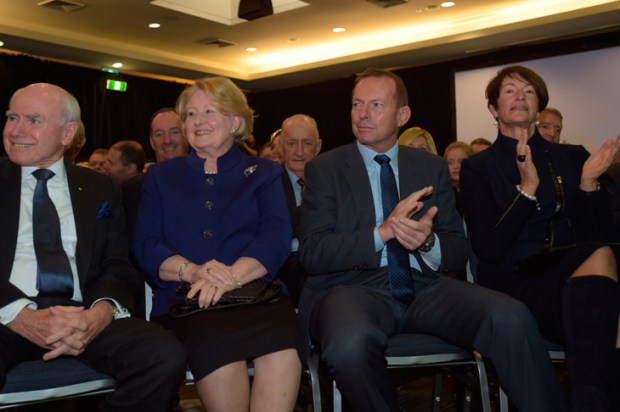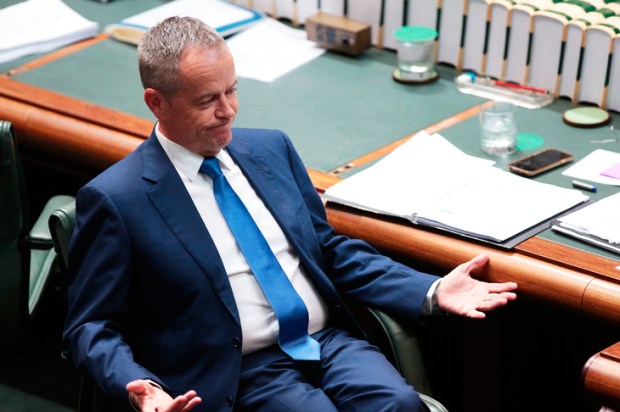LGBTI marriage is not a right. LGBTI marriage is not a right, but freedom of religion, or freedom to disagree with LGBTI marriage, is. Should the national plebiscite return a majority Yes vote, George Brandis’s draft Marriage Amendment (Same-Sex Marriage) Bill may form the basis of any Bill put before Parliament. That Bill was weak in defence of those who disagree with LGBTI marriage.
It is also plain that the proposal is to apply not solely to ‘same-sex’ marriage, but LGBTI marriage. The proposal that will be put to the postal vote is to replace the definition of marriage from ‘the union of one man and one woman’ to ‘the union of any two people’. This is not same-sex marriage per se, it is transgender marriage, the union of any two people regardless of sex or gender-identity.
Transgender marriage. It raises broader issues related to sexuality. If marriage were extended to transgender persons, transgender sex and relationships education, such as the Safe Schools Coalition program, would be more likely enforced in Australian schools. To not teach children about transgender forms of marriage and transgender relationships would risk complaints of discrimination under anti-discrimination laws by treating transgender forms of marriage and relationships differently to other forms of marriage and relationships. Knowing that the International Covenant on Civil and Political Rights explicitly mentions freedom of religion and conscience Brandis should have made these explicit and expansive in his Bill. As Nicholas Aroney and others argued in a submission to the Parliamentary committee considering the Bill, ‘great care needs to be taken to ensure’ that a focus on rights such as freedom from discrimination does not diminish other rights such as ‘freedom of religion, association and cultural expression and practice.’ As the Bill stands, those exempted are restricted only to those actually involved in the act of marriage, or directly providing services to the solemnisation. Aroney cites the example of pre-wedding photography not being exempted, and therefore liable to fall foul of discrimination legislation. Neither are individuals protected, only organisations, which leaves individuals and their beliefs lacking the protection of exemption. Further, ‘religious organisation’ as such is too narrowly defined, providing no exemption to religiously ‘inspired’ organisations (ie. charities).
The baker is still a target. As Aroney argues, ‘Sincerely motivated decisions by individuals and groups to act or not act in certain ways do not necessarily cease to be acts of religious conscience simply because they occur in a commercial setting.’ So the baker who refuses to bake the wedding cake is liable. All of the emphasis has been on the couple who is refused a service. Of course they may be offended or embarrassed, but the the aim of the provisions is not to save from offence. Nor is it necessarily the intention of the person who refuses to provide a service. The ‘harm’ caused in forcing a person to act contrary to religious conscience should be balanced against the harm caused a couple refused a service. There have also been instances in Australia and elsewhere where individuals and businesses have been approached to provide goods or services to facilitate the promotion of a particular political viewpoint in the same-sex marriage debate. This appears to be rife in the Australian corporate scene. Next time you fly Qantas read the in-flight magazine, it is filled with same sex marriage propaganda. Woe betide any employee or supplier that doesn’t toe the Joyce line.
The US software engineer James Damore was sacked from Google for expressing an opinion about cultural taboos on explaining male-female disparities in the company and IT engineering in general. He ventured the opinion that not all disparities are caused by discrimination: quite so. He accused Google of being an ‘ideological echo chamber’. Deliciously, Damore quotes the Left loopy doyen Noam Chomsky that ‘the smart way to keep people passive and obedient is to strictly limit the spectrum of acceptable opinion’.
As Aroney argues, anti-discrimination laws need to ‘protect the sincerely-held religious, conscientious, political and moral opinions of those who provide goods and services to the public.’ They should not face the prospect of being coerced into facilitating the promotion of views with which they sincerely disagree.
No obligation to grant access to marriage. Mark Fowler’s submission on the Bill points out that the top ‘goody’ of the ‘goodie-two-shoes-brigade’, the European Court of Human Rights, has on numerous occasions concluded that the European Convention on Human Rights does not impose an obligation to grant same-sex couples access to marriage. As your humble columnist has argued elsewhere, marriage is commonly understood as being that between a man and a woman and it is not a discrimination to not extend the meaning of that word to anyone else. There is no human right to same sex marriage, just a desire to have what others have. Which is a bit like wanting to be heterosexual.
The same-sex marriage campaign shows just how bereft of decent argument and respect for the rights of others the ‘marriage equality’ crowd have been. They have not prepared a Bill that the so-called pinnacles of human rights, the European Court and UN Human Rights Committee, would support: the defence of religious belief as opposed to the mere desire to have what heterosexuals have always understood to be theirs.
Brandis should have defended the right to be different as strongly as he defended the right to be the same. Sameness is apparently what Lesbian, Gay, Bisexual, Transexual and Intersex people demand. Whatever happened to celebrating diversity?
Got something to add? Join the discussion and comment below.
Get 10 issues for just $10
Subscribe to The Spectator Australia today for the next 10 magazine issues, plus full online access, for just $10.
You might disagree with half of it, but you’ll enjoy reading all of it. Try your first month for free, then just $2 a week for the remainder of your first year.














Comments
Don't miss out
Join the conversation with other Spectator Australia readers. Subscribe to leave a comment.
SUBSCRIBEAlready a subscriber? Log in